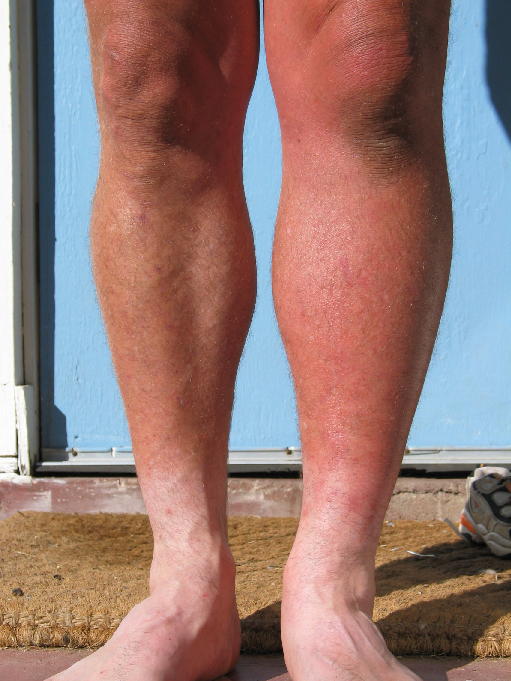Swelling in legs can be a concerning symptom, often indicating underlying health issues. It can affect individuals of all ages and may arise from various causes, including injury, medical conditions, or lifestyle factors. Understanding the significance of swelling in legs and the corresponding ICD-10 codes is crucial for accurate diagnosis and treatment. This article delves into the complexities of leg swelling, its implications in medical coding, and the various factors that may contribute to this condition.
ICD-10, or the International Classification of Diseases, 10th Revision, is a system used by healthcare professionals to classify and code diagnoses, symptoms, and procedures. When it comes to swelling in legs, the correct ICD-10 code is essential for proper documentation and billing. This article aims to provide a comprehensive overview of the different aspects of swelling in legs, including its causes, diagnostic processes, and treatment options. By understanding the nuances of this condition, patients can better navigate their healthcare journeys.
Not only is swelling in legs a physical symptom, but it can also have psychological effects on individuals who experience it. The uncertainty and discomfort associated with swelling can lead to anxiety about underlying health issues. Therefore, it is important to seek medical attention when experiencing persistent or unexplained swelling in the legs. This article will explore the various reasons for leg swelling, the significance of the ICD-10 code related to this condition, and how to effectively manage it.
What Causes Swelling in Legs?
Swelling in the legs can occur due to numerous reasons, ranging from benign to severe medical conditions. Here are some common causes:
- Injury: Trauma to the leg can lead to localized swelling.
- Venous Insufficiency: Poor circulation can cause blood to pool in the veins, resulting in swelling.
- Heart Conditions: Congestive heart failure can lead to fluid accumulation in the legs.
- Kidney Issues: Impaired kidney function can cause fluid retention.
- Liver Problems: Liver disease may result in swelling due to low protein levels.
- Infections: Infections in the leg can trigger inflammation and swelling.
- Medications: Certain medications may have side effects that include swelling.
How is Swelling in Legs Diagnosed?
The diagnosis of swelling in the legs typically involves a thorough medical history and physical examination. Healthcare providers may ask about the duration of swelling, any associated symptoms, and previous medical conditions. Additional diagnostic tests may include:
- Ultrasound: To check for blood clots or venous insufficiency.
- Blood Tests: To assess kidney and liver function.
- X-rays: To evaluate for bone fractures or other structural issues.
What is the ICD-10 Code for Swelling in Legs?
The ICD-10 code for swelling in the legs can vary based on the underlying cause. Some common codes include:
- R60.0: Localized edema
- I87.2: Venous insufficiency (chronic)
- I50.9: Heart failure, unspecified
- N18.9: Chronic kidney disease, unspecified
What Are the Treatment Options for Swelling in Legs?
Treatment for swelling in the legs depends on the underlying cause. Here are some common treatment options:
- Elevation: Elevating the legs can help reduce swelling.
- Compression Therapy: Wearing compression stockings can improve circulation.
- Medications: Diuretics may be prescribed to reduce fluid retention.
- Lifestyle Modifications: Regular exercise and a balanced diet can improve overall health.
When Should You Seek Medical Attention for Leg Swelling?
While occasional swelling may not be a cause for concern, persistent or severe swelling warrants medical evaluation. Seek immediate medical attention if you experience:
- Sudden swelling in one leg
- Severe pain or tenderness
- Shortness of breath or chest pain
- Fever or chills
What Lifestyle Changes Can Help Manage Swelling in Legs?
In addition to medical treatment, certain lifestyle changes can help manage swelling in the legs:
- Stay Active: Engage in regular physical activity to improve circulation.
- Watch Your Diet: Reducing salt intake can help manage fluid retention.
- Hydrate: Drinking plenty of water can prevent dehydration and promote healthy circulation.
- Avoid Prolonged Sitting or Standing: Take breaks to move around and stretch.
Conclusion
Swelling in legs can be a symptom of various underlying health issues, making it essential to understand the potential causes and treatment options. The ICD-10 codes related to leg swelling play a crucial role in diagnosis and billing, allowing healthcare professionals to provide appropriate care. By recognizing the importance of seeking medical attention and making lifestyle adjustments, individuals can manage their symptoms effectively and improve their overall health.



ncG1vNJzZmixn6PAtr7IZqWeq6RjsLC5jpycpZ2Sp7a1xZJoqrCdnKG2r7OMoqVmpJWcwG61wp1kamhencGuuA%3D%3D